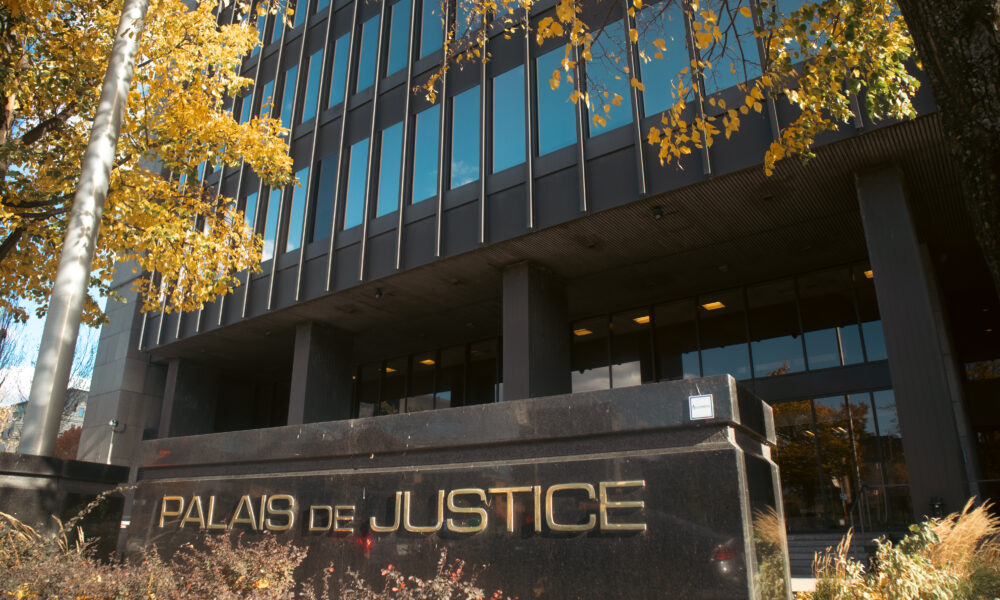On Oct. 21, the Superior Court of Québec dismissed McGill’s provisionary injunction request to limit protest activities on campus. The request came after the university successfully obtained a 10-day injunction barring campus demonstrations under specific conditions following a protest on Oct. 7.
McGill and Concordia students organized this protest to demand their institutions divest from companies complicit in the genocide of Palestinians. The Oct. 7 rally ended when police used tear gas on protestors, some of whom smashed the windows of the Sylvan Adams Sports Science Institute on Avenue des Pins. McGill also restricted access to campus from Oct. 5-7 in anticipation of Oct. 7 protests, and later extended these restrictions through Oct. 8.
Like the 10-day injunction, McGill’s injunction request named Students for Palestine’s Honour and Resistance (SPHR) at McGill as the defendant. The injunction request aimed to extend the same measures put in place with the 10-day injunction, which banned SPHR and “any person having knowledge of or having received service of the judgment” from actions such as obstructing entrances to buildings on campus, protesting within five metres of campus buildings, and disrupting academic activities.
The hearing for the injunction request took place on Oct. 18, the same day that the 10-day injunction expired. In the ruling, Justice Gary Morrison wrote that he dismissed the request because McGill had not shown that SPHR’s past activities, such as its demonstrations, demanded an urgent need for the injunction.
In an email to The Tribune, the McGill Media Relations Office (MRO) explained that the university submitted the injunction request to “protect its academic mission and to defend students’ and instructors’ right to learn and work in an environment that is safe, stable, and suitable for teaching, learning, and research.”
A representative from SPHR, who wished to remain unnamed, argued that this injunction is one of several legal actions that McGill has filed against student activists protesting Israel’s attacks on Palestine and Lebanon. As an example, they cited the injunction the university filed in May requesting the removal of the Palestine Solidarity Encampment.
“This isn’t the first time that McGill has [filed an] injunction against the students,” they said. “This shows that the protests are affecting McGill and are working [….] So it’s more motivating than anything.”
As SPHR did not attend the hearing, Justice Morrison allowed four organizations to act as intervening parties in the case: Independent Jewish Voices (IJV) McGill, the Association of McGill Professors of Education (AMPE), the Association of McGill Professors of the Faculty of Arts (AMPFA), and Palestinian and Jewish Unity.
Associate Professor in the Faculty of Education and Interim President of AMPE, Dennis Wendt, told The Tribune that the union chose to be an intervening party because the injunction could restrict the union’s right to protest.
“Given the injunction’s broad scope to include anyone aware of the decision, we were concerned about a precedent […] of clawing away at actions pertaining to protests or picketing […] that unions or other groups would be involved with,” Wendt wrote.
Kyle Kubler, Interim Second Vice-President of AMPFA and Faculty Lecturer at the McGill Writing Centre, expressed concern that the injunction could act as a way for the university to control the actions of those on campus.
“We’re worried about the type of precedent this behaviour could create where McGill simply turns to injunctions rather than dialogue to deal with dissent, be it from students, faculty, staff or the public,” Kubler wrote.
Kubler went on to claim that by banning protests within five metres of campus buildings, the injunction would also interfere with the union’s right to safely protest outside of their workplace. According to Kubler, this rule would mean some instructors—such as those working in Sherbrooke 680, like himself—would be forced to stand in the street rather than demonstrate on the sidewalk.
The MRO maintained that the 10-day injunction did not violate staff and students’ rights to freedom of speech or freedom of assembly, and that McGill supports community members’ rights “within the limits of the university’s policies and the law.”
For the SPHR representative, the court’s decision is a “victory” for the student movement for Palestine. They reaffirmed that SPHR would continue to pressure McGill to cut financial and academic ties with Israel.
“It’s […] a really great time for the student movement to keep pushing for their goals of [ending] their academic institutions’ complicity in the genocide in Gaza.”









